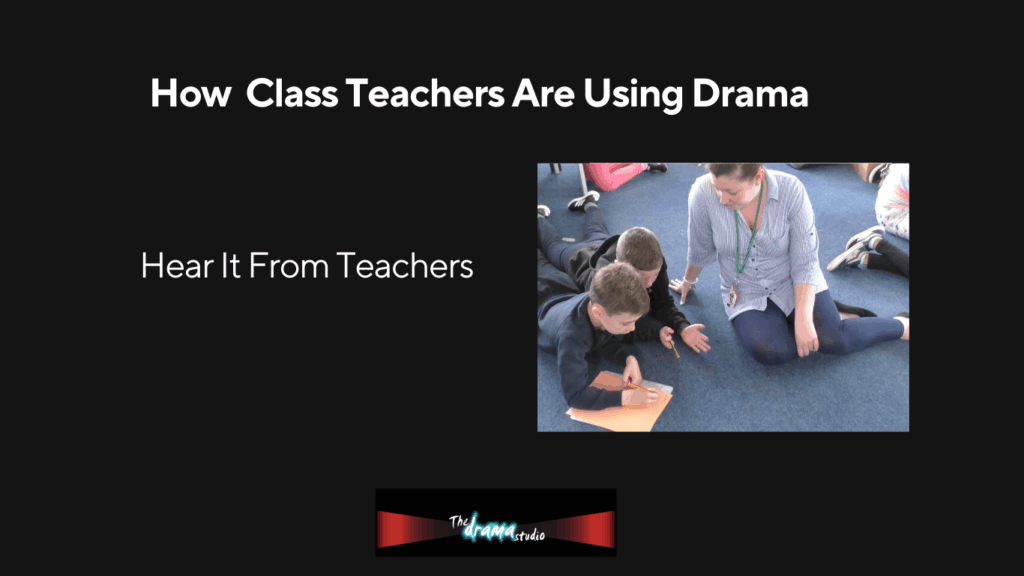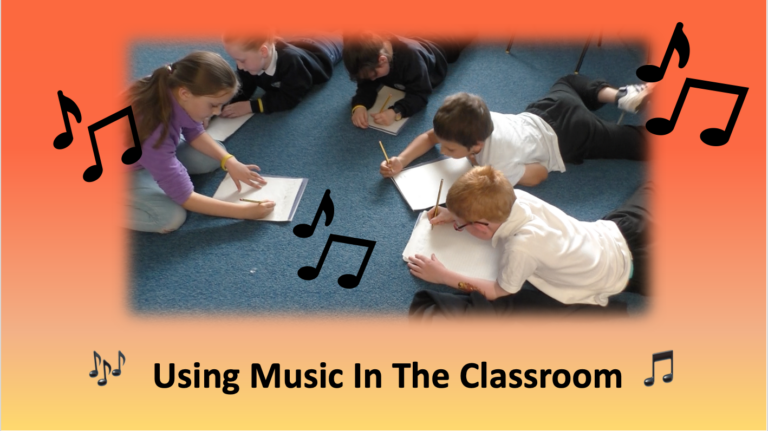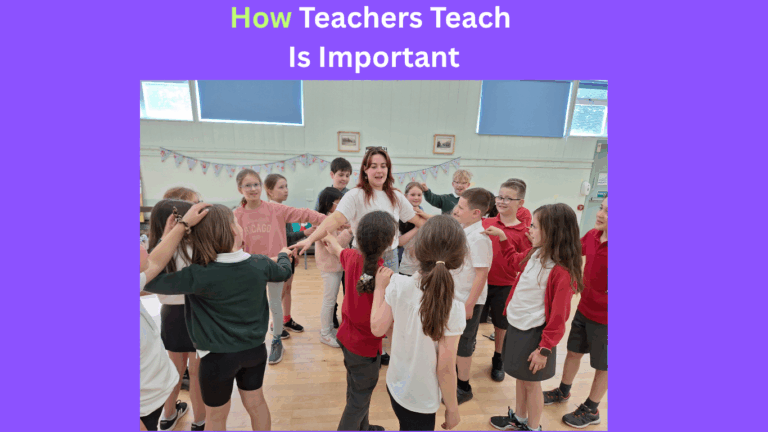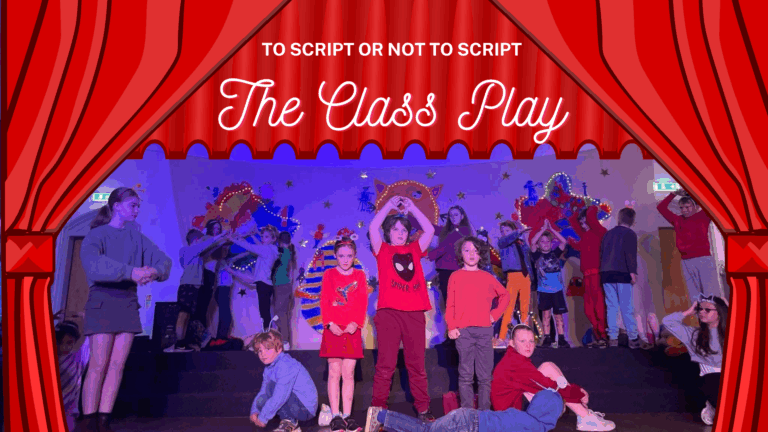Many classroom teachers are using Drama directly in their classrooms as part of every day teaching.
They see it as an inspiring way to engage their students in their learning.
They might explore a topic, a theme, a skill, through a scenario.
Learning comes to life through becoming a character and also helps them to engage their own emotions through this character.
Certain techniques are particularly good for addressing emotionally challenging situations :
Whoosh – This technique is done altogether, enacting a storyline/scenario and so gives a sense of being a “part of” as the adventure takes place.
Thought Tapping – Good for thinking aloud. Done through a Drama character can also help students to verbalise their own emotions.
Corridor of Thought – Excellent technique looking at the emotional turmoil of difficult dilemmas or conflict. Playground squabbles can be played out using this technique so learners see a situation from someone else’s viewpoint and collectively they reach agreement and reconciliation.
Teachers frequently extend the Drama lesson into writing. Different kinds of writing can become the focus of what started as an interactive Drama lesson.
After a lesson learners can express their thoughts and reflections though personal writing.
Teachers use Drama to bring the class novel to life as learners step inside the characters’ shoes, understanding the real depth to that character and their situation.
Reading about a character is fine but actually becoming that character through Drama is a far more intensive and superior experience.
Turn that into a piece of writing and you almost certainly will have higher quality work, no matter what the academic ability of the students.
Teachers have also found that this new willingness to write from the lessons has, at the same time, improved technical writing skills such as vocabulary, punctuation, connectives, spelling and grammar.
A dynamic part of The Over To Programme is that the Literacy elements are shared so that pupils find themselves reading out their work within a group task or to a partner or even to the whole class.
They quickly realise that an unpunctuated, badly spelt piece will make for a poor presentation.
The personal motivation to get it right is a strong one.
They naturally begin to proof-read their work aloud to themselves in anticipation of the share elements of Drama Literacy.
Teachers find that they are more receptive to lessons on technical aspects because they experience first hand the reason for them.
We receive lots of learner feedback from our Over to You Drama Literacy Resource.
Sample of Learner Feedback on Literacy Aspects of Over To You
“It gives us ideas about stories to write and the characters to use.”
‘Doing the writing bits was good as we hadn’t written scripts for a long time’.
“Drama can help me get ideas to write.”
“I can’t wait for Thursday so I can write all about the object that comes to life.”
“Acting out before I write my story helps me be clear on what it is I am writing about.”
“We could make a script of what the characters say”
“Direct speech is much easier after writing a script”
“It helped to remember when planning writing”
“Can I draw an advert” (after writing persuasive advert for bookshop)
“It was fun writing a recount using a comic strip”
“Acting out before I write my story helps me be clear on what it is I am writing about.”
“I didn’t like taught writing that much but I love drama and now drama helps me with great ideas for my writing so it’s not as hard” P7
“Drama has helped me feel more confident in myself and we’ve written our own scripts. I didn’t think I could do that!” P7
I didn’t like taught writing but the writing we do with drama is fun like storyboards and restaurant reviews and I’m starting to like it more – P7.
My favourite part has been writing my own script. It’s been challenging but really enjoyable P7.
It was easier to write because it was in small chunks and was then added to so I could make my writing longer.
The drama helps me to write in a different point of view.
It helps me work better when I’m writing because I have to think of what other people are saying and we have to work together.
“ I liked working with my classmates to create our own script”
“I have really enjoyed these drama lessons as they have helped with my literacy.”
Because you’ve done it you know what vocabulary to use.
Because we acted it out it was in our brains and so easier to write about.
“It was fun drawing the characters from the bookshop.”
…….And What Do Teachers Say Teachers On The Literacy Aspects?
We did a newspaper article after completing the Mystery at Morton Manor and the writing was great. They included extra details and were able to show a clear beginning, middle and end to their writing.
The children are more willing to spend time on it to get their full story told, to match what they’ve acted out.
I’ve used some of the suggested writing ideas, and for others I’ve done my own thing, depending on what I thought would work best for my class.
My pupils have really enjoyed the writing tasks, particularly when they’ve worked together, as for the scriptwriting and interview tasks.
The class worked well on the lessons where writing was embedded. I have some reluctant writers in my class, and this felt like an almost sneaky way to get them writing!
The children are already engaged and have good knowledge of the subject to write about. They are more eager and willing to write.
I also feel that the drama has really helped the less able writers in my class to write more detailed pieces of work. The fact they have created/acted/performed the drama and watched others this is helping them with their ideas and creativity in their writing.
Using the drama in their writing has also engaged them during writing as they are writing about something they have experienced.
How important it is to give pupils ideas and real life situations for certain writing tasks as this has given them a context rather than them having to use their imagination! I’ve always found drama really useful for written tasks too, because having lived it, it’s so much easier to write about.
They are more excited and engaged during writing, and have produced longer and higher quality pieces of work.
I had expected the script writing to be challenging, but the children really enjoyed it. Instead of writing the script individually, they wrote them in their groups.
It has been helpful for those who struggle with writing in general, as they are filled with ideas which they write down, and then we can look back over it and edit it etc.- rather than battling to get ideas out and then check for punctuation and grammar etc.
The students have enjoyed the literacy tasks as it allows them to have a more in depth think about the characters and the scenarios. I feel that expressive arts as a whole is a badly neglected area and to be able to offer the children a quality drama resources has been a treat.
Pupils have been very engaged with the literacy side as it links through well from the drama and have been able to produce some fantastic literacy work.
Over To You is our online 3 Module Resource which has been highly rated as an introduction to Drama teaching in the classroom and how to link with Literacy to great effect.
You can read about it and Trial it for free anytime.




